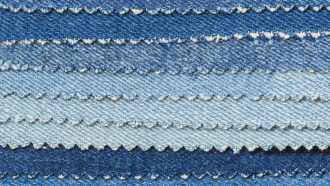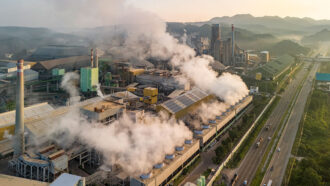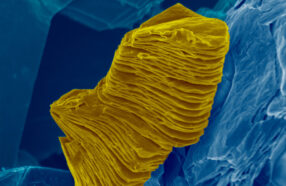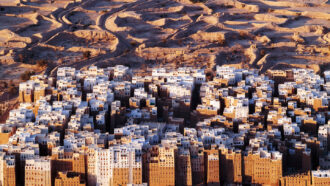aerosol: (adj. aerosolized) A tiny solid or liquid particle suspended in air or as a gas. Aerosols can be natural, such as fog or gas from volcanic eruptions, or artificial, such as smoke from burning fossil fuels.
atmosphere: The envelope of gases surrounding Earth or another planet.
context: The setting or circumstances that help explain an event, some statement or some conclusion.
fire: The burning of some fuel, creating a flame that releases light and heat. (in neuroscience) The activation of a nerve or neural pathway.
fog: A thick cloud of water droplets that touches the ground.
fossil fuel: Any fuel — such as coal, petroleum (crude oil) or natural gas — that has developed within the Earth over millions of years from the decayed remains of bacteria, plants or animals.
fuel: Any material that will release energy during a controlled chemical or nuclear reaction. Fossil fuels (coal, natural gas and petroleum) are a common type that liberate their energy through chemical reactions that take place when heated (usually to the point of burning).
liquid: A material that flows freely but keeps a constant volume, like water or oil.
measles: A highly contagious disease, typically striking children. Symptoms include a characteristic rash across the body, headaches, runny nose, and coughing. Some people also develop pinkeye, a swelling of the brain (which can cause brain damage) and pneumonia. Both of the latter two complications can lead to death. Fortunately, since the middle 1960s there has been a vaccine to dramatically cut the risk of infection.
particle: A minute amount of something.
solid: Firm and stable in shape; not liquid or gaseous.
soot: Also known as black carbon, it's the sometimes oily residues of incompletely burned materials, from plastics, leaves and wood to coal, oil and other fossil fuels. Soot particles can be quite small — nanometers in diameter. If inhaled, they can end up deep within the lung.









